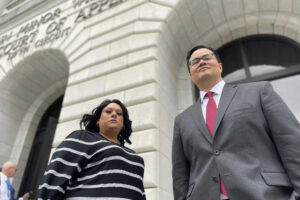TPP Chapter Released by WikiLeaks Would Let Governments Curtail Trials So as to Contain Information
What WikiLeaks claims to be the full intellectual property chapter of the Trans-Pacific Partnership appears to give countries greater power to stop sensitive information from going public. T / CC BY-ND 2.0
T / CC BY-ND 2.0
What WikiLeaks claims to be the full intellectual property chapter of the Trans-Pacific Partnership appears to give countries greater power to stop sensitive information from going public.
The Guardian reports:
One chapter appears to give the signatory countries (referred to as “parties”) greater power to stop embarrassing information going public. The treaty would give signatories the ability to curtail legal proceedings if the theft of information is “detrimental to a party’s economic interests, international relations, or national defense or national security” – in other words, presumably, if a trial would cause the information to spread. …
Among the provisions in the chapter (which may or may not be the most recent version) are rules that say that each country in the agreement has the authority to compel anyone accused of violating intellectual property law to provide “relevant information […] that the infringer or alleged infringer possesses or controls” as provided for in that country’s own laws.
The rules also state that every country has the authority to immediately give the name and address of anyone importing detained goods to whoever owns the intellectual property.
That information can be very broad, too: “Such information may include information regarding any person involved in any aspect of the infringement or alleged infringement,” the document continues, “and regarding the means of production or the channels of distribution of the infringing or allegedly infringing goods or services, including the identification of third persons alleged to be involved in the production and distribution of such goods or services and of their channels of distribution.”
The Guardian further reports that a drafter’s note says every participating country’s individual laws about whistleblowing would still apply — though whether or not they would be applied would of course be up to the officials empowered to execute those laws.
Evan Greer, campaign director of Internet activist group Fight for the Future, said of the disclosure: “The text of the TPP’s intellectual property chapter confirms advocates’ warnings that this deal poses a grave threat to global freedom of expression and basic access to things like medicine and information. … But the sad part is that no one should be surprised by this. It should have been obvious to anyone observing the process, where appointed government bureaucrats and monopolistic companies were given more access to the text than elected officials and journalists, that this would be the result.”
Read more here.
— Posted by Alexander Reed Kelly.
Your support matters…Independent journalism is under threat and overshadowed by heavily funded mainstream media.
You can help level the playing field. Become a member.
Your tax-deductible contribution keeps us digging beneath the headlines to give you thought-provoking, investigative reporting and analysis that unearths what's really happening- without compromise.
Give today to support our courageous, independent journalists.






You need to be a supporter to comment.
There are currently no responses to this article.
Be the first to respond.